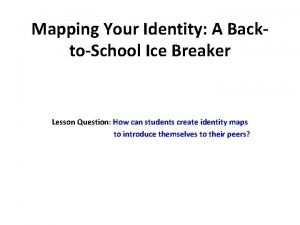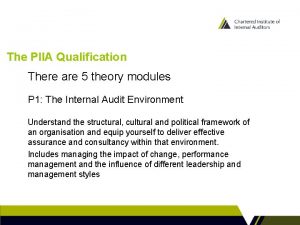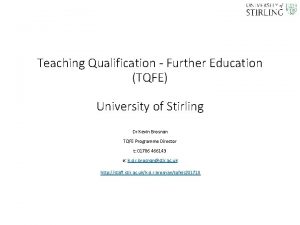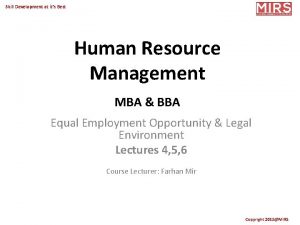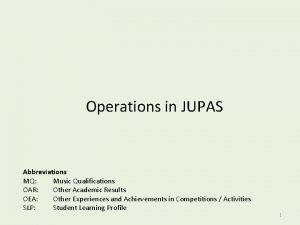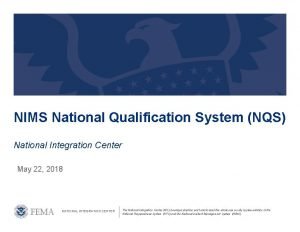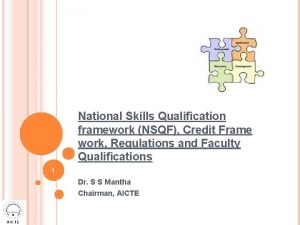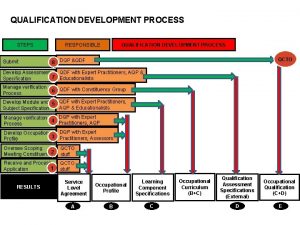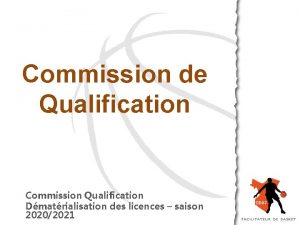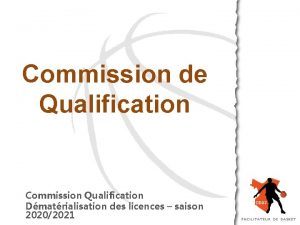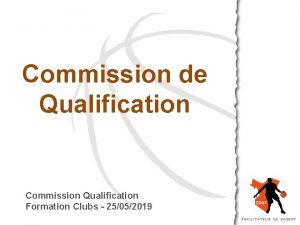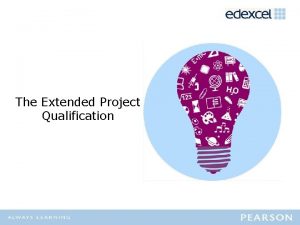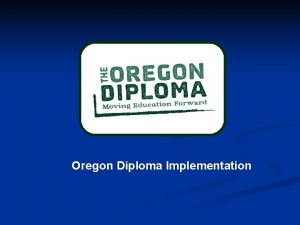The new Diploma qualification a question of identity














- Slides: 14

The new Diploma qualification: a question of identity? Professor Prue Huddleston Dr Andrea Laczik Centre for Education and Industry, University of Warwick, UK Education and Employers Taskforce Conference: Employer engagement in education: exploring social mobility and delivery mechanisms in international perspective 12 October 2011 University of Warwick

Outline • Provide a rationale for investigating this issue; • Introduce briefly the new Diploma qualification and its history; • Outline the sources of data used for our argument; • Present and describe issues shaping and influencing the identity of the Diplomas; • Reflect upon the issues and processes that impacted on the identity of the Diplomas.

Why is identity important? • Nature of the qualification is likely to determine the type of young people who participate in the programme; • Nature of the qualification is likely to determine the progression route a young person may pursue; • Diplomas have received mixed reception from universities; • Schools found it difficult to conceptualise the programme; • Ambiguity exists over the characteristics and nature of the Diplomas.

14 -19 Diplomas Phase 1 (2008) Phase 3 (2010) Engineering Creative and Media Society, health and development IT Construction and the built environment Retail business Sport and active leisure Travel and tourism Public services Structure Phase 2 (2009) Business, administration and finance Manufacturing and product design Hospitality Hair and beauty studies Environmental and land-based studies Principal learning + Generic learning + Applied and specialist learning

Definitions • (Occupational) • Vocational (Stanton, 2008: content, process and context) • Vocationally-related • Applied • (Academic)

Data Sources • Policy documents; • Reviewing Diploma Development: An Evaluation of the Design of the Diploma Qualifications (Ertl et al, 2009) semistructured interviews with DDP representatives; • Two semi-structured interviews with Diploma providers from the West Midlands.

What impacts on the identity of the Diplomas • • Policy rhetoric; Phase of the Diploma Line; Vision for the qualification; Stakeholders in the qualification development process; • Structure and content of the programme; • Delivery and place of the Diploma among other qualifications.

Policy rhetoric • The changing name of the new qualification led to confusion; • Diplomas were to be developed as employerled qualifications reflecting the skills demands of the labour market and the needs of employers; • Diplomas were also to lead to further studies; • Guidance documents (all three) set the purpose of the Specialised Diplomas.

14 Diplomas in 3 Phases • Sector Skills Councils (SSCs)led the development process; • Earlier phase Diplomas had more freedom and flexibility in developing content; • Later phase Diplomas learnt from earlier experience; • Attempts to raise the profile of the sector.

Vision • Innovative, engaging, different from existing qualifications; • Wanted to create value-added, timely qualifications and to improve the image of the sectors; • Start with ‘blank paper’ or by looking at existing qualifications? • Not a training programme; • Need to integrate soft skills and functional skills; • More general or more specialised? • Difficulty of reaching consensus among the stakeholders.

Stakeholders in the qualification development process SSCs led the qualification development. Aim to: • raise the profile of their sector; • influence young people as potential employees; • reduce the gap between skills supply and labour market demand. Employers not previously engaged in qualification development to this extent. Finding consensus between HE and employer representatives.

Diploma delivery and its place among other qualifications • Diploma leads (BAF) were heads of business studies and vocational courses (including competitor qualifications); • Entry requirements in functional skills in order for students to cope, and level of attendance; • Both schools offer only L 2 Diplomas, and students continue with applied or traditional A level or L 3 BTEC; • Employer engagement could have been stronger – logistics and resources; • ~25% of L 2 Diploma students plan to go the university;

Current developments and their impact on Diplomas • Political forecast impacted negatively on Diplomas; • Less time and effort was put into developing it further in the schools; • Change in funding – limited opportunities for employer engagement and work situated activities; • Growing number of Academies - reduced opportunities for collaboration.

Conclusion • Initial confusion over the new Diploma identity; uncertainty about the specificity of the qualification, its form, shape and purpose; • Emphasis on generic skills and functional skills, plus sector related understanding; • Don’t mention the ‘v’ word; • Strong applied nature of the qualification – is this misleading? • Identity formation is increasingly difficult given the decreasing number of school consortia and the number of students taking up the course; • Diplomas do not fulfil the vocational ‘acid test’ in terms of content, process and context; • The question remains as to whether or not Diploma graduates would be successful in gaining employment or accessing HE.
 3 levels of questions
3 levels of questions Examples of identities of a person
Examples of identities of a person Essential question about identity
Essential question about identity In a typical asme welder qualification test
In a typical asme welder qualification test V model qualification
V model qualification Piia qualification
Piia qualification Tqfe qualification
Tqfe qualification Adit registration
Adit registration Bona fide occupational qualification
Bona fide occupational qualification Dq design qualification
Dq design qualification Ano kaya ang ginawa ng mga tao
Ano kaya ang ginawa ng mga tao Jupas ole sample
Jupas ole sample Pn
Pn National integration center
National integration center Nsqf competency level 8 is equivalent to
Nsqf competency level 8 is equivalent to

